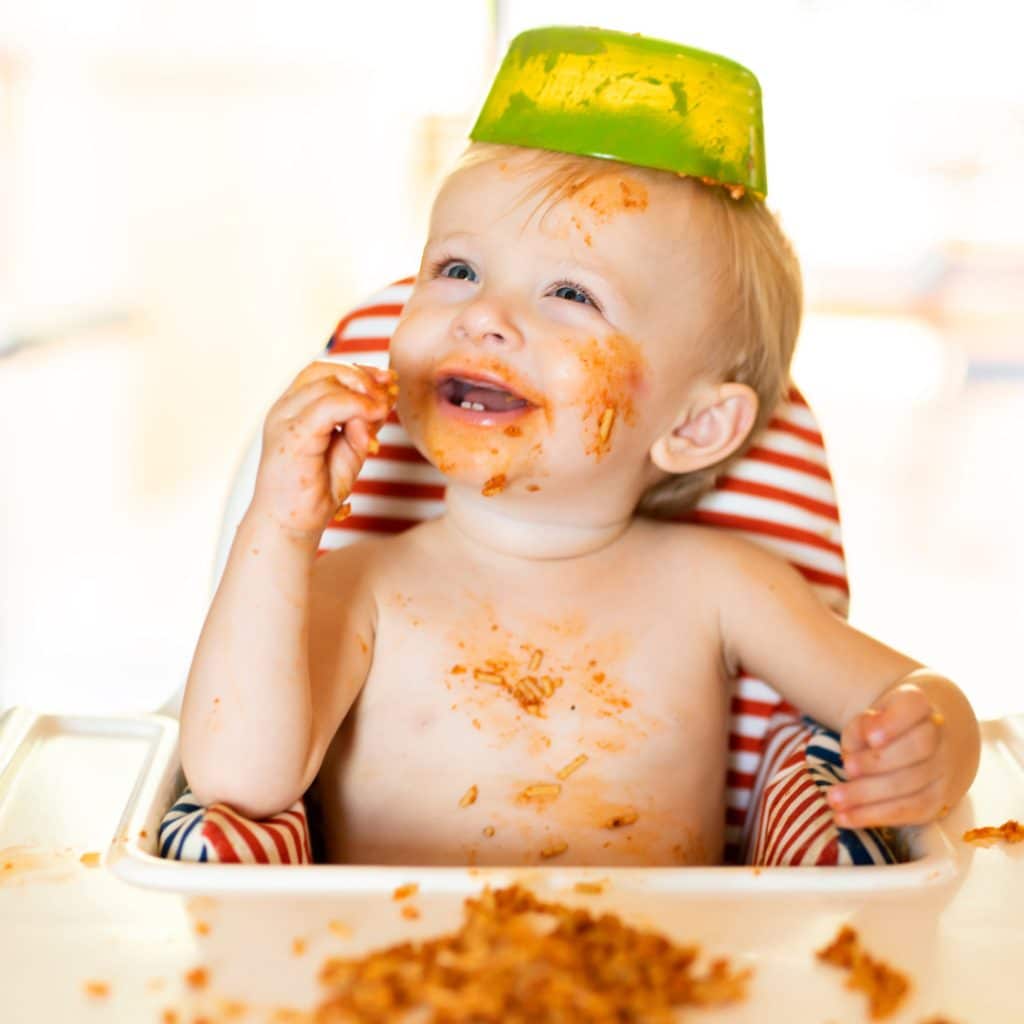This week is Weaning Week so we’re talking all things weaning! We are excited to part of the fantastic event that is taking place in the Weaning Week Facebook group. Click here to gain access to loads of amazing talks and advice from industry experts (including us!).

Most of us Daisy First Aid trainers are also mums so in honour of this year’s Weaning Week we’ve compiled our top tips for weaning your baby based on our own experiences!
1 – Timing is everything
Don’t try and start weaning when your little one is tired or hungry. Do it when they’re happy and well rested and remember, the more relaxed you are the more relaxed they will be.
2 – Avoid metal spoons
These can get hold and could burn your little one’s mouth. It’s best to stick with plastic spoons to begin with.
3 – Embrace the mess!
Weaning is a very messy business… try not to worry too much about the mess and focus on having fun with your baby! Getting a washable mat to put underneath baby’s highchair can help with the clean up operation. We also recommend getting a dog to help with this!
4 – Be allergy aware
Give new foods in the morning or at lunchtime – that way you’ll be able to spot an allergic reaction if one develops. Look out for the ABC symptoms that could indicate a severe allergic reaction. If you’re not familiar with them click here to read our previous blog post on this.
5 – Cut it lengthways
Most people are aware of the dangers of grapes due to their size and shape but there are other foods that also can be a choking hazard. Blueberries, sausages, cherry tomatoes, olives and anything else disc shaped or round needs to be cut in half lengthways or into quarters. For hard foods such as cucumber and apple slice it thinly or grate it rather than giving them large chunks to chew on.
6 – Know what foods to avoid
Honey
In rare cases honey can cause infant botulism which is a very serious illness so the NHS advises not to give honey until after 12 months. It also contains lots of sugar so isn’t great for those little teeth.
Whole nuts and peanuts
Whole nuts are a choking hazard. Babies can have nuts but they must be crushed, ground or given in nut butter.
If there’s a history of food allergies or other allergies in your family, talk to your GP or health visitor before introducing nuts and peanuts.
Salt
Salt isn’t good for babies’ kidneys so they shouldn’t have much of it. Don’t add salt to cooking or give them very salty food. Stock cubes often contain lots of salt so if you’re cooking with them look out for the low salt alternatives.
Some cheeses
Babies can eat pasteurised full-fat cheese from 6 months old. This includes hard cheeses, such as mild cheddar cheese, cottage cheese and cream cheese.
They shouldn’t eat mould-ripened soft cheeses, such as brie or camembert, or ripened goats’ milk cheese and soft blue-veined cheese, such as roquefort. There’s a higher risk that these cheeses might carry a bacteria called listeria.
7 – Know the difference between gagging & choking
Worries about choking are very common but gagging and mild choking is a completely normal part of the weaning process. Make sure you know how to spot when your baby is choking and needs your help. If your child is choking severely you’ll need to act fast to help remove the blockage.
8 – Do a Daisy First Aid class!
On a Daisy First Aid class we’ll teach you all about allergies, choking and LOTS more so why not do a class before you wean your baby so you are fully prepared and feeling confident.
To find your nearest Daisy trainer click here.
